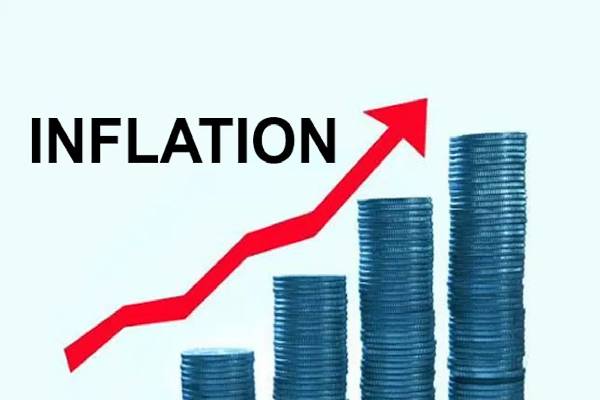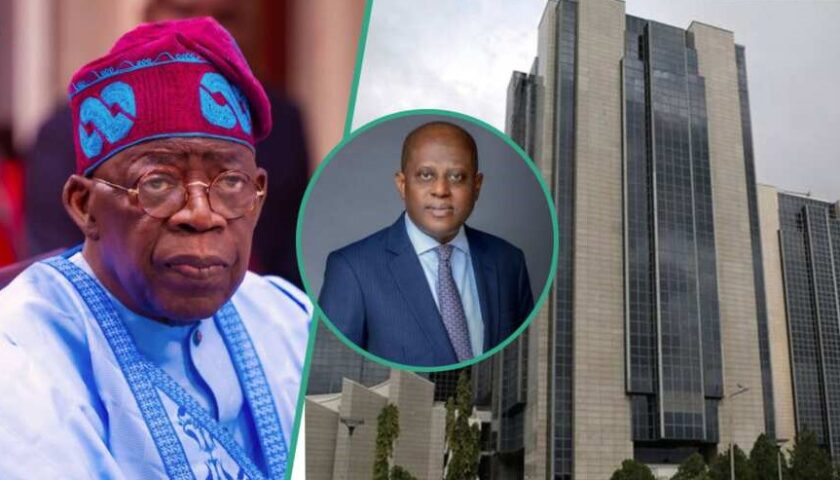Nigeria’s inflation rate climbed to the highest level in 17 years with headline inflation rate (all items index) at 20.77 per cent in September 2022. This revelation is coming less than four months to the 2023 general elections.
The All Progressive Congress (APC) has been in charge of the economy since they ousted the Peoples Democratic Party (PDP) in 2015. The were able to win election because they promised Nigerians ‘’change’’ but with less than four months to the end of the Muhammadu Buhari-led APC as president of Nigeria, the citizens can now compare notes between the APC and the PDP, and would not be deceived into believing in vague promises again.
The National Bureau of Statistics (NBS) said in its latest Consumer Price Index (CPI) published on Monday that the index on a year-on-year basis was about 4.14 per cent points higher when compared to 16.63 percent rate recorded in the corresponding period in September 2021.
Consumer price index (CPI) measures the changes in the general price level of goods and services purchased by households for consumption purposes relative to a base period. The inflation rate computed from the CPI index is the relative change in the CPI between periods.
The blamed the increase in the all-item index on an interruption in the food supply chain, the influence of domestic currency depreciation on the cost of importation, and a general increase in the cost of production.
On a month-on-month basis, the NBS said headline inflation rate in September 2022 was 1.36 per cent, which was 0.41 percent lower than the rate recorded in August 2022 (1.77 per cent). The statistics agency said the implication of the latest headline inflation figure was that in September 2022 the general price level was 0.41 per cent| lower relative to August 2022.
The decline in the all-items index on a month-on-month basis over the two months, the NBS said, was due to the changes in the food index relative to the reference month index due to the ongoing harvesting season.
“The percentage change in the average CPI for all items index for the twelve months ending September 2022 over the average of the CPI for the previous twelve months period was 17.43 per cent, showing a 0.6 per cent increase compared to 16.83 per cent recorded in September 2021,” the NBS said.
“The food sub-index increased by 23.34 per cent on a year-on-year basis in September 2022, with the inflation rate of 3.77 per cent higher compared to the rate recorded in September 2021 (19.57 per cent),” the agency added.
The rise in the food index, it noted, was caused by increases in prices of Bread and cereals, Food products n.e.c, Potatoes, yam and other tubers, oil, and fat.
On a month-on-month basis, the food inflation rate in September was 1.43 percent, which was a 0.54 per cent decline, compared to the rate recorded in August 2022 (1.98 per cent) attributable to a reduction in prices of some food items, like tubers, palm oil, maize, beans, and vegetables.
The NBS said the average annual rate of food inflation for the twelve months ending September 2022 over the previous twelve-month average was 19.36 per cent, which was a 1.35 percent points decline from the average annual rate of change recorded in September 2021 (20.71 per cent).
The NBS said the index for all items less farm produce (Core inflation), which excludes the prices of volatile agricultural produce stood at 17.60 percent in September 2022 on a year-on-year basis, with the index rising by 3.86 per cent when compared to 13.74 percent recorded in September 2021.
On a month-on-month basis, the NBS said core sub-index was about 1.59 percent in September 2022, similar to the rate recorded in August 2022, the with the highest increases in prices of gas, liquid fuel, passenger transport by air, solid fuel, and passenger travel by road.
The average 12-month annual inflation rate was 14.93 per cent for the twelve months ending September 2022, which was 2.38 per cent points higher than the 12.55 per cent recorded in September 2021.
On the consumer price index for urban consumers, the NBS report showed that it rose by 4.06 per cent on a year-on-year basis, while the urban inflation rate in September 2022 higher at 21.25 per cent, compared to the 17.19 percent recorded in September 2021.
While on a month-on-month basis, the urban inflation rate was 1.46 per cent in September 2022 was a 0.34 per cent decline compared to August 2022 (1.79 per cent).
The corresponding twelve-month average for the urban inflation rate was 17.94 per cent in September 2022, amidst which was 0.53 per cent higher compared to the 17.41 percent reported in September 2021.
The inflation rate for rural consumers in September 2022 on the other hand was 20.32 percent on a year-on-year basis, about 4.24 percent higher compared to the 16.08 per cent recorded in September 2021.
On a month-on-month basis, the rural inflation rate in September 2022 was 1.27 per cent, down by 0.48 percent compared to August 2022 (1.75 per cent). The corresponding twelve-month average for the rural inflation rate in September 2022 was 16.94 per cent, which was 0.68 percent higher, compared to the 16.26 per cent recorded in September 2021.
On the states profiles, all item’s inflation rates for September 2022 on a year-on-year basis were highest in Kogi (23.82 per cent), River (23.49 per cent), Benue (22.78 per cent), while Abuja (17.87 per cent), Borno (18.12 per cent) and Adamawa (18.42 per cent) recorded the slowest rise in headline Year-on-Year inflation.
However, on a month-on-month basis, the state all items index for September 2022, recorded the highest rate in Jigawa (2.58 per cent), Yobe (2.22 per cent), Benue (2.05 percent), while Abuja (-0.72 per cent), Sokoto (-0.19 per cent) and Adamawa (0.25 per cent) recorded the slowest rise in inflation.





